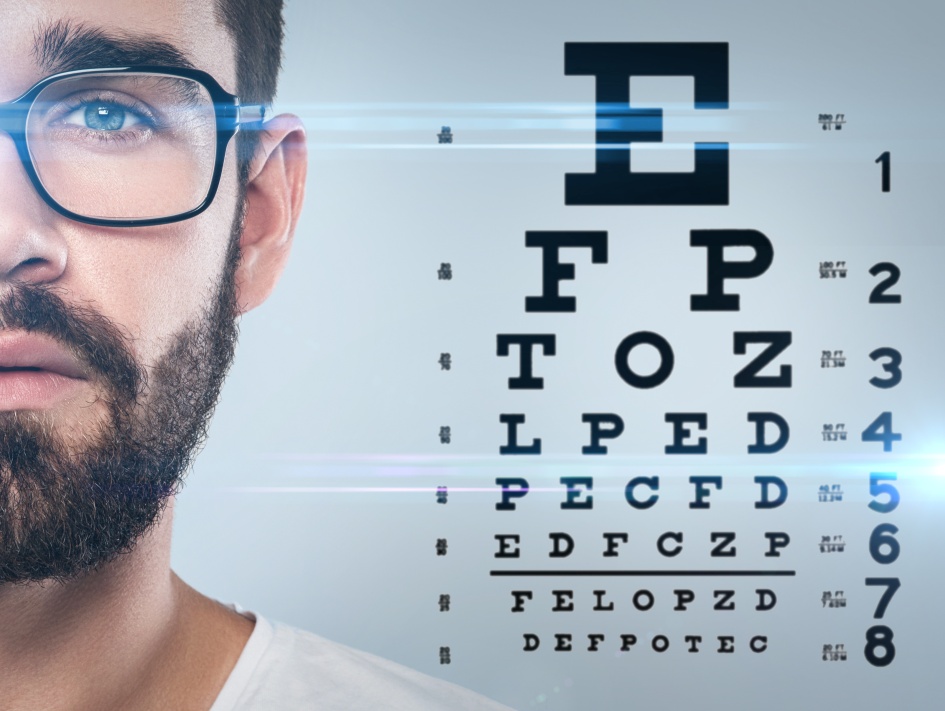
Healthy Eyes, Healthier You: The Importance of Preventative Eye Care
Even if you're not one of the millions of Americans with prescription glasses or contacts, regular eye exams can prevent some common eye diseases that cause permanent vision loss or blindness. Eye exams can also catch serious health issues and conditions that affect the eyes, such as diabetes and cancer.
Maximize your eye health and protect your overall health by making your eyes part of your wellness routine.
Why Is Eye Health So Important?
Blurred vision or itchy eyes at the end of a long workday are common irritations that can resolve quickly — but an eye doctor should promptly examine even a slight vision change. Symptoms like eye pain, redness and light flashes are signs you shouldn't ignore.
Eye doctors can catch many health conditions — serious and benign — through regular eye exams. Some of the conditions detectable through eye exams include:
- Diabetes – A chronic condition that affects the way the body processes blood sugar; diabetes is the leading cause of vision loss in people 18–64 years old, according to the American Diabetes Association. While diabetes has its own signs and symptoms, regular eye exams can detect the early stages of vision changes caused by diabetes before a formal diagnosis. This warning can enable you to make positive life changes and begin treatment sooner, reducing your risk of severe vision loss or blindness.
- Autoimmune diseases – Autoimmune diseases are a collection of conditions where cells in the body begin to attack its own tissues. Eyes are very commonly affected by autoimmune diseases. Rheumatoid arthritis, for instance, causes eye dryness that can lead to infection. If the dryness is untreated and severe enough, it can damage the cornea and your overall vision.
- Brain cancers or tumors – Depending on their location in the brain, brain tumors can seriously impact your vision. Brain tumors on or near the optic nerve can exert enough pressure to cause blurry vision, double vision or even blindness.
Eye exams can also reveal non-emergency causes of eye irritation, discomfort and vision loss, such as allergies, migraines and vitamin deficiencies.
When Should I Visit the Eye Doctor?
If you have to ask, you're likely already due for an appointment. Just like taking your car in for an oil change, your eyes benefit from regular eye exams and preventative care.
While you might see "good enough" from an old pair of lenses and only experience brief moments of eye discomfort, it's a good idea to get regular eye exams even if you don't notice significant changes to your vision. Eye doctors can make small but significant changes to your prescription that can reduce feelings of irritation or discomfort.
They can also address the root causes behind common eye complaints, such as:
- Squinting – If you regularly strain to read street signs and struggle to read the text on your phone, your eyes are likely undergoing vision changes. Avoid unnecessary eye strain, headaches and discomfort by making an appointment with your eye doctor.
- Floaters – Periodically experiencing small floaters or spots in your vision is typical. But when those floaters are accompanied by light flashes or grow in size, it could signify a detached retina. Contact an eye doctor immediately to prevent loss of vision.
- Headaches – Changes in vision can cause frequent headaches. They can help you identify the source and determine if you need glasses or an updated prescription.
- Blurry vision – Vision that slowly gets blurrier over time can indicate your eyes are changing and a new prescription is needed. If your vision suddenly becomes blurry or comes and goes, it might be a sign of a more significant health problem.
What Can I Do To Improve My Eye Health?
Making an eye appointment is the first step to improving your eye health. Luckily, a lot of the things that benefit our overall health and wellness can also have a positive impact on our eyes.
- Make positive life changes – Eating healthy dark leafy greens, staying active and not smoking can all have a tangible impact on your eye health by reducing the risk of health conditions that can affect your vision. Wear proper eye protection if you like to stay fit by participating in a club or sport.
- Rest your eyes – If you spend a lot of time staring at a screen, use the 20-20-20 rule to help prevent eye fatigue. Look away from your device to a point 20 feet in front of you for 20 seconds every 20 minutes. Incorporating this simple step into a daily mindfulness routine can relax your eyes and reduce dryness and irritation. Don't forget to protect your eyes when you're away from screens. Wearing your sunglasses outside on sunny days can lower your risk for cataracts.
- Talk to your family – The health conditions that can impact your eye health — such as glaucoma and diabetes — can run in families. Talk to your loved ones about your family health history to ensure everyone knows of any eye-related health risks. This is important information for your doctor, so take notes if necessary.
Always consult your doctor or other healthcare professionals before starting any new wellness routines, including changes in diet or exercise.
The Healthy Vision Association is dedicated to improving vision health by providing access to unique vision and overall health products, services and information. To view your HVA member benefits, visit healthyvisionassociation.com.
